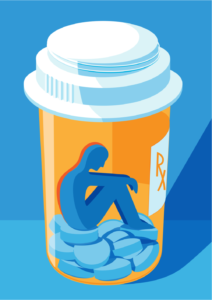 According to the U.S. Surgeon General, 1 in 7 Americans will face a substance abuse issue at some point during their life ranging from alcoholism to illicit drug addictions and even prescription medication addictions. Unfortunately, despite the commonality of substance abuse, there is friction in the workplace when it comes to hiring individuals who have recovered from their addiction or are currently undergoing recovery treatment.
According to the U.S. Surgeon General, 1 in 7 Americans will face a substance abuse issue at some point during their life ranging from alcoholism to illicit drug addictions and even prescription medication addictions. Unfortunately, despite the commonality of substance abuse, there is friction in the workplace when it comes to hiring individuals who have recovered from their addiction or are currently undergoing recovery treatment.
Currently, there is an opioid addiction crisis in the United States that affects more than 2 million individuals. Those who are afflicted by this crisis have a difficult time recovering from their addiction. If they do recover, those who have suffered from opiod addiction (and any other addiction) find it extremely challenging to secure work. As a result, employers across the United States are feeling pressure to respond by becoming a “recovery friendly” workplace.
In a recovery friendly workplace, individuals who have suffered or are suffering from a substance abuse issue can find support in their recovery. Although each recovery friendly workplace is different, therapy, accountability, and training are a few of the components employers use to create a successful recovery friendly workplace program.
If you are looking to implement a successful recovery friendly program in your workplace, look no further than the state of New Hampshire for guidance. Recently, the governor of New Hampshire, Chris Sununu, created an initiative to change the stigmas associated with addiction and hiring. Now, other states such Rhode Island are joining in and bringing some of their most successful corporations with them.
According to businesses who have “been there done that” in terms of workplace recovery programs, helping individuals through recovery is positive when it comes to retaining employees. Despite the praises of these programs, there are still factors associated with addiction and substance abuse in the workplace that employers need to be wary of. For example, individuals who have a relapse while working might not be able to safely perform functions of their job and may pose a threat to their co-workers. Furthermore, some individuals, depending on their addiction, might be protected by the ADA if they have a relapse while working and they need to take a leave of absence.
As an employer, when creating a recovery friendly workplace program, you have to be vigilant about every step you take to ensure that it will operate the way it was intended. Therefore, before you begin, you need to open up channels of communication with experts and professionals who will help you get off on the right foot. Local substance abuse program officers, addiction counselors, and individuals who have recovered are a great place to start. However, as with any HR program, it is also imperative to seek legal advice before making anything official.
